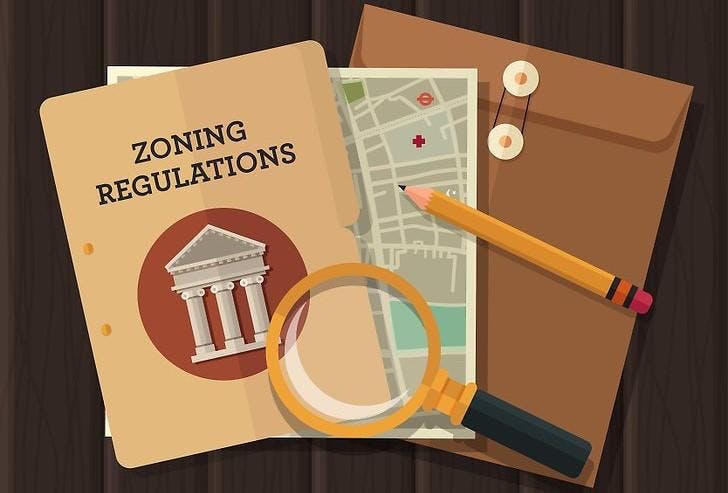According to the Golden Rule: Do Unto Others as You Would Have Them Do Unto You.

DUE PROCESS is the Golden Rule of Principled Government. It is one of the most basic, fundamental, universal concepts of American government, reflected in both the Utah State and U.S. Constitutions, applicable to many governmental actions: “No person shall be deprived of life, liberty or property, without due process of law.” The right of Due Process is considered to be a basic, inherent, inalienable right. According to one statement of the proper role of government: “The function of government is not to grant rights, but to protect the unalienable, God-given rights of life, liberty, property, and the pursuit of happiness.“
At the most basic level, Due Process embodies the the principle of fundamental fairness. It also embodies the concepts of reasonable and rational decision-making, evenhandedness and the right to be heard.

Due Process serves two basic goals. One is to produce, through the use of fair procedures, more accurate results: to prevent the wrongful deprivation of protected interests, including life, liberty, and property interests. The other goal is to treat people fairly, give them their “due” and help people feel that the government has treated them fairly by listening to their side of the story.
Due Process is intended to guarantee basic, fundamental fairness in governmental decision-making. Fairness can, in various cases, have many components. Among other things, procedural due process requires fair and reasonable notice and a meaningful opportunity to be heard by an impartial tribunal — before action is taken that impacts any kind of protected interest (life, liberty & property interests — and property interests is a concept that covers a broad spectrum of interests).

The U.S. Supreme Court has stated that when protected interests are at issue, actual (personal) notice is required, as opposed to simply posting a public agenda. In Mennonite Board of Missions v. Adams, 462 U.S. 791 (1983), the U.S. Supreme Court held, as a fundamental matter of procedural due process, that: “before the State conducts any proceeding that will affect the legally protected interests of any party, the State must provide notice to that party by a means certain to ensure actual notice as long as the party’s identity and location are ‘reasonably ascertainable’.” Id. at 800 (emphasis added). Utah Appellate Courts have held that greater due process rights may exist under the Utah State Constitution, and applicable state law, including equitable and common law, than under the U.S. Constitution.
It has likewise long been clearly established that any legitimate due process requires a neutral, unbiased decision-maker. A fair and meaningful hearing before an unbiased tribunal is a basic requirement of due process that applies to legislative and administrative bodies as well as courts.” Scholars and judges consistently characterize provision of a neutral decisionmaker as one of the three or four core requirements of a system of fair adjudicatory decision making. “Bias or prejudice is a form of conflict of interest. . . . conflict of interest includes bias or prejudice. . . . bias or prejudice [is] a basis for disqualification”

“[W]here one member of a tribunal is actually biased, or where circumstances create the appearance that one member is biased, the proceedings violate due process. The plaintiff need not demonstrate that the biased member’s vote was decisive or that his views influenced those of other members. Whether actual or apparent, bias on the part of a single member of a tribunal taints the proceedings and violates due process. And, procedural due process requirements, including unbiased decisionmaker, apply to all quasi-judicial proceedings, which, regardless of any other guise, occur any time there is determination and/or application of a policy to a specific case or situation. Where a party to an adversarial proceeding can demonstrate actual impermissible bias or an unacceptable risk of an impermissible bias on the part of a decision maker, the decision maker must be disqualified.”
In general, the more important the individual right in question, the more process that must be afforded. The deprivation of life, for example, is intended to require the most rigorous protections, while suspension of a driver’s license, for example, may not require the same level of protection.

Substantive due process also requires that all governmental decisions must be supported by a legitimate basis (rather than public clamor and/or other arbitrary and capricious factors), and often that there must be specific findings of substantial evidence for the grounds in support of actions and decisions. If the protected interest at issue is what is known as a “fundamental” right or interest (freedom of religion, freedom of speech, property rights, etc.), then the grounds necessary to deprive those interests must be compelling governmental interests. That is the law.
Proper Due Process also serves the important function of separation of powers, and checks and balances in government.
Due Process is the Golden Rule of Principled Government.




The government of now times has been built over time to resemble the wolf.
The most efficient killing and maiming machine ever.
Generally the govt must 1st do something illegal to harm the citizen which of course then causes citizens to supposedly break a law.
Thus the govt wolf then jumps the citizens.